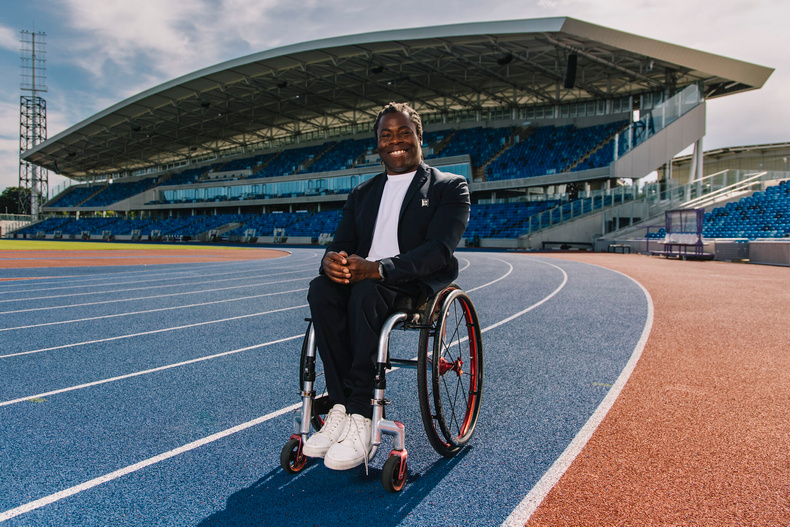New BCU chancellor vows to build on Sir Lenny Henry’s ground-breaking media diversity work

Ade Adepitan, Birmingham City University’s (BCU) new Chancellor, says the UK is “just scratching the surface of its talent” by failing to embrace diversity.
And the 51-year-old television presenter, disability advocate and Paralympic bronze medallist admits the appeal of building on the work of BCU predecessor Sir Lenny Henry by pushing the British media to become more diverse is a key reason he took the prestigious leadership role.
“Look, we can't truly call ourselves Great Britain unless we have a diverse media,” Ade told Sir Lenny in a wide-ranging interview for the latest edition of Representology.
“Everything that's public facing, if it's not diverse, we can't call ourselves ‘Great’. ‘Great’ means you utilise and maximise the talent of everyone that surrounds you - everyone. That's what ‘Great’ is about. ‘Great’ is not about only maximising the talent of one group of people.”
Ade (pictured), who uses a wheelchair after contracting polio as an infant, added: “Just think of how many potential Einsteins, potential Lennys, potential incredible superstars we've lost because we've just decided to pick from a tiny talent pool.
“The UK, at the moment, is only just scratching the surface of its talent - and the only way it's going to be the best that it can be is when it starts having media that look like the country.”
During his eight-year tenure as BCU chancellor, comedian, writer and actor Sir Lenny, 66, oversaw the creation of the Centre for Media Diversity that bears his name.
Established in 2020, the Centre, which is based at BCU, has become increasingly influential within the media industry, publishing a growing list of valuable research.
It recently reviewed the BBC’s £112 million Creative Diversity commitment and advised Channel 4 on its Black to Front Project, which builds on the broadcaster’s commitment to improve Black representation on screen and more widely in the TV industry.
“Your research centre is another big reason why I thought this would be such a good position to take on because,” Ade told Sir Lenny.
“When I saw what you've done, I thought ‘Look at Lenny. Lenny's making real change, proper cut through, you know.’”
When asked by Sir Lenny if he saw his role as Chancellor as an opportunity to contribute to social change, Ade, who set up his own media production company to give more mainstream opportunities to disabled talent, responded: “Yeah, I would be disappointed with myself if I hadn't done something like that in three years’ time.”
During his interview with Sir Lenny, Ade also discussed a number of personal topics, including the “agonising decision” his parents faced when he was still living in Nigeria.
They wanted to build a new life in London but could not afford to bring both Ade and his older sister Omoyile, who has Down's syndrome, to the UK.
“They chose me because of my needs, because they were physical,” explained Ade.
“I couldn't walk around. I was crawling around on the floor. My mum said to me that she saw the way I was crawling and moving and she just thought that I was not going to survive.”
Ade also talked about his career in wheelchair basketball, which resulted in a bronze medal at the 2004 Paralympics in Athens.
He recalls the moment he was converted to the game, while watching Great Britain’s men play at Stoke Mandeville.
“I went and saw wheelchair basketball at the elite level, and I saw these guys,” Ade told Sir Lenny.
“Unbelievable. Blew away all my preconceptions. They had the biggest arms I had ever seen, and they were flying around the court.
“What really captured my imagination is that they were talking about excellence. As a disabled person, people always talk to you about what you can't do and about the barriers.
“These guys weren't talking about barriers. They were talking about being the best in the world.
“Lots of people search for years, all their life, to find their tribe - and I had found my tribe. I found the people connected to my world.”



